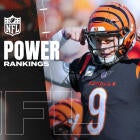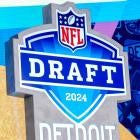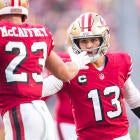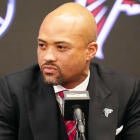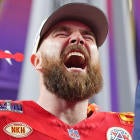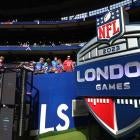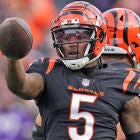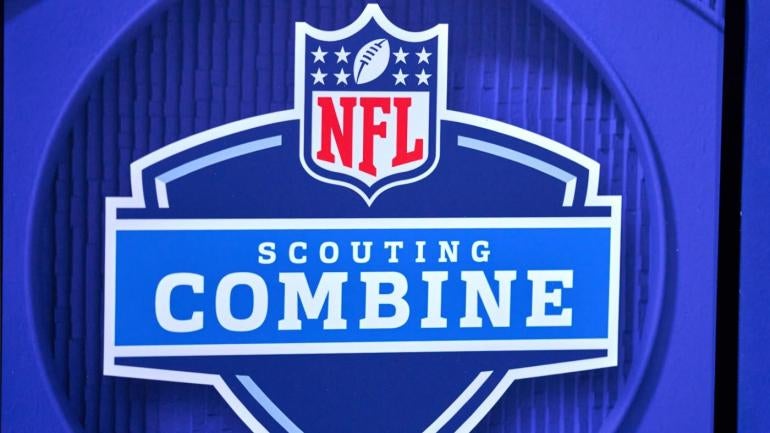
In December, NFL EVP of football operations Troy Vincent talked to NFL owners about the need to humanize the process of the NFL Scouting Combine.
Some new technology will help those efforts next week.
According to a league source, body scans will be used for the first time at next week's combine in hopes of eventually replacing the manual body measurements that have been done for decades in scouting.
The consideration is that the scans will replace the "hands-on" process of measuring players height, hand size and wingspan with the single-scan approach. These scans are going to be beta tested next week for accuracy, with the belief that they'll be fully integrated in 2024 and beyond.
The NFL has been proposing the use of body scans for at least the last two years, according to a source. If the testing proves accurate, it's a less intrusive way to get better information on players. One source said the league already used it at this past week's HBCU combine.
The scanning machine looks somewhat like a body scanner at an airport. Sources say these scans can also taking measurements like body-mass index along with metrics like height and wingspan.
Last year, all-star games did away with public weigh-ins and measurings.
The league, led by Vincent and chief medical doctor Allen Sills, have efforted streamlining the medical evaluation of prospects by using best standard practices. The league introduced more telehealth opportunities for teams to learn a player's college medical history heading into the combine.
In Indianapolis, there will be one exam per prospect instead of multiple exams. The hope is to reduce the number of MRIs and other similar scans, which would streamline the most arduous process in the entire combine.
"The biggest thing that the players have raised over time is, 'I come in, I'm fired up for this, and I have to go and get an additional medical test. And I'm sitting in a hospital waiting for four or five hours on an MRI machine. I have to have multiple meetings about the same type of injury,'" NFL commissioner Roger Goodell said at December's league meetings. "For us, it's really about trying to improve that experience. And they talk about lack of sleep because they get in at 1 o'clock in the morning and then have to be back at 5, and then they have to perform on the field. And it's an important element for them because they want to perform at the highest level.
"I think all of that goes into why we want to make that experience better for the players coming, making sure that they have the best ability to perform. And make sure that the clubs obviously get that information, but they have to get that in an appropriate and professional way."














